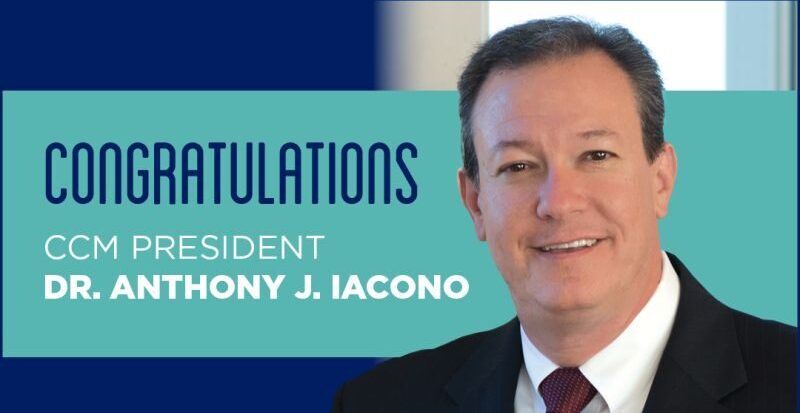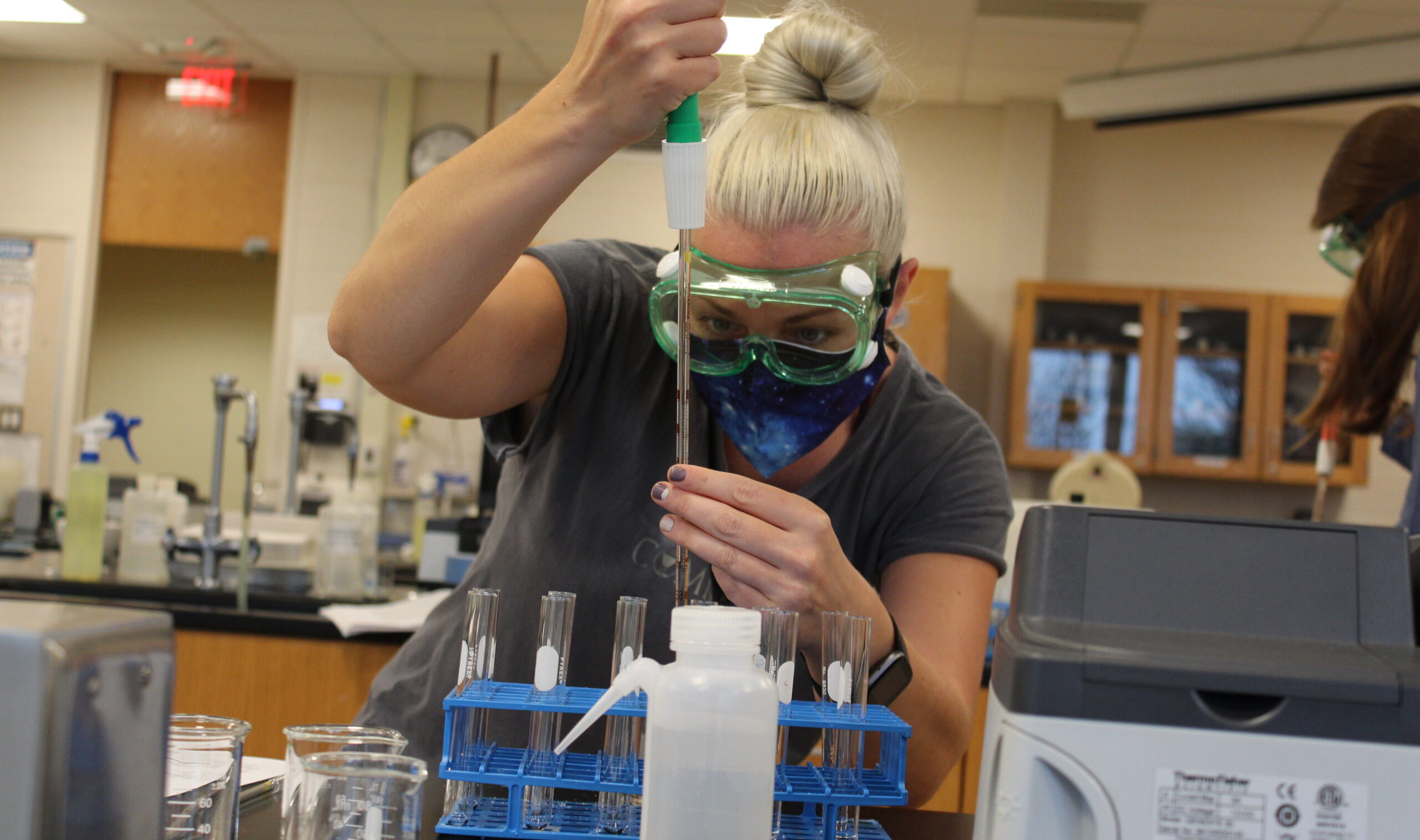What You Will Learn
Help save lives!
The Paramedic Science Program at CCM teaches you the fundamental skills needed to help mankind in an emergency medical situation. Learn how to interact with a patient and develop a treatment in a prehospital environment.
This field is experiencing tremendous growth and professionalism is essential if you are seeking to excel. Be set apart from others by virtue of dignity, worthiness, and level of responsibility.
Leadership opportunities exist and require more than an ordinary demonstration of good human relations. The associate degree from CCM will ensure your eligibility for the National Registry paramedic license and NJ Paramedic Licensure.
Curriculum
The Paramedic Science program at CCM features a 43-credit core of hands-on clinical courses such as Paramedic Science I and II and four Paramedic Clinical Experiences, plus an internship with additional field experience meeting the demand of industry. A 20-credit foundation in the liberal arts and sciences provides the required fundamental knowledge and necessary communication skills to ensure success with patients and colleagues.
Program Structure
The Paramedic Science Program is a two phase, competitive based admissions program. A separate application is required for acceptance into the Professional Phase (didactic & clinical courses). Acceptance is based on grades achieved in the pre-professional phase.
Pre-Professional Phase:
Typically completed in one semester. Acceptance into CCM as Paramedic Science major in addition to the following requirements: attainment of the age of 18 by the first day of PAR 120; possession of a high school diploma or equivalent; possession of NJ EMT certification and CPR certifications; physical capability to perform all required skills and tasks of a paramedic as cited in the program’s curriculum.
Professional Phase:
Admission by separate program professional phase application. Acceptance determined through a selective admissions process. Paramedic core courses are completed sequentially in five semesters (two summer semesters). An advanced placement sequence is available for currently certified New Jersey Paramedics seeking to complete their AAS degree.
Careers in the Field
Emergency medical technicians (EMTs) and paramedics respond to emergency calls, performing medical services and transporting patients to medical facilities, and other services and responsibilities. It can be an incredibly fulfilling and satisfying experience to help save lives.
Employment of EMTs and paramedics is projected to grow 11 percent by 2030, faster than the average for all occupations. About 20,700 openings for EMTs and paramedics are projected each year, on average, over the next decade.
Areas of specialization upon earning your Associate of Applied Science degree in Paramedic Science from CCM enables you to launch your career and focus on any of these much-needed areas:
- Administrative
- Air Medical
- Ambulatory Services
- Armed Forces
- Community
- Critical Care
- Emergency Rooms
- Fire Departments
- Hospitals
- Medical Equipment
- Rescue Services
Paramedics work with doctors, nurses, EMTs, and pharmacists, as well as patients of every age. This degree program also enables you to further your education at the bachelor’s level or beyond in the medical field.
The average salary for a paramedic with an AAS degree is $47,783, according to Payscale, with a range of $34-68K.
Why Study Paramedic Science at CCM?
The Paramedic Science Program prepares students to earn an Associate of Applied Science (AAS) degree to enter the paramedic profession as entry-level clinicians.
- An evidence-based curriculum is reviewed and revised annually by experts and overseen by the program’s Advisory Committee.
- Technical standards, as outlined in the Paramedic Science Student Handbook, are essential for the delivery of safe and effective paramedic care during laboratory and clinical training activities and in broad entry-level practice.
- To provide a realistic, hands on, and safe learning environment, high-fidelity simulators are used in skilled laboratories prior to entering clinical and field rotations.
Paying for Your Paramedic Science Education
There’s good news: Money is available to help you pay for school! Our Financial Aid staff can provide lots of information about the process of finding funds to help pay for your education.
Featured Courses
Paramedic Science I
This course introduces the student to EMS systems and the roles and responsibilities of a paramedic. Building on the student’s foundation of knowledge from program pre-requisites, this course will relate principles of human anatomy, physiology, and pathophysiology, to emergency pre-hospital care. Students will be introduced to pharmacology, medication administration, fluids and electrolytes, cardiology, and airway management. Focus will be placed on emergency topics including: cardiology, respiratory, neurology, toxicology, and psychiatric emergencies. In the skills laboratory students will demonstrate and practice patient assessment, vascular access and medication administration, and basic and advanced airway management.
Paramedic Clinical Experience
This course serves as the first clinical experience for paramedic students providing practice of acquired skills on live patients in the hospital setting under direct supervision of a clinical preceptor. The course meets the minimum requirements as set forth by N.J.A.C.8:41A-2.5: Specific Clinical Objectives- Category I/Skills Division to provide the educational clinical experience required to prepare the student to achieve licensure as a paramedic. Specific clinical areas include interventions for advanced airway management, respiratory care, IV access, cardiac care, and cadaver lab. Clinical rotations are meant for application of learned theory and patient care skills while under the direct supervision of a clinical preceptor.
Paramedic Internship-Field Experience
This course provides the field internship experience required to prepare the student for certification and/or licensure as a paramedic. The field internship is completed under the guidance of paramedic preceptors and allows the student to apply the knowledge and skills acquired in prior coursework to the pre-hospital setting. Focus will be placed on scene safety, patient assessment, formulating a field impression and treatment plan, and communicating effectively with colleagues and other healthcare providers.
Accreditation
The CCM Paramedic Science Program was issued a Letter of Review by the Committee on Accreditation of Educational Programs for the Emergency Medical Services Professions (CoAEMSP). This letter is NOT a CAAHEP accreditation status, it is a status signifying that a program seeking initial accreditation has demonstrated sufficient compliance with the accreditation standards through the Letter of Review Self Study Report (LSSR) and other documentation. Letter of Review is recognized by the National Registry of Emergency Medical Technicians (NREMT) for eligibility to take the NREMT’s Paramedic credentialing examination(s). However, it is NOT a guarantee of eventual accreditation.
To contact CoAEMSP:
8301 Lakeview Parkway, Suite 111-312
Rowlett, TX 75088
214-703-8445
Fax: 214-703-8992
www.coaemsp.org
Resources
Your Paramedic Science Faculty Advisor
Andrea Murray Paramedic Program Director
Email: amurray@ccm.edu
Office: Emeriti Hall Room 133
Office hours: Monday and Wednesda 9:30 – 11:45 am and 4:00 pm – 5:00 pm
Phone: 973-328-2485
Department: Health Professions and Natural Sciences Division



